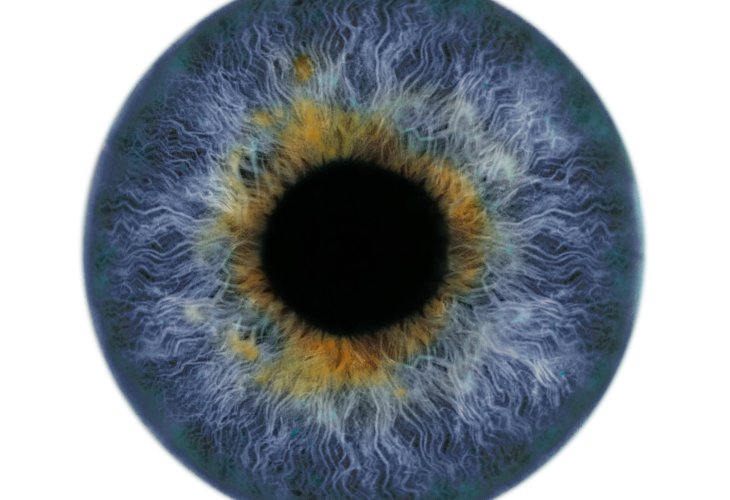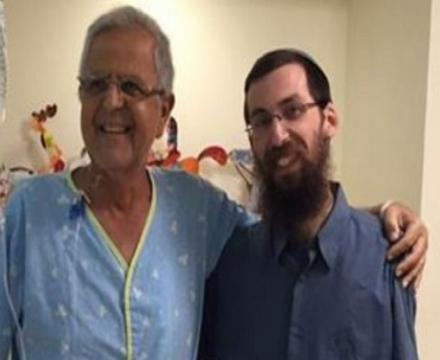"Donating a Kidney is Like Giving Birth"
Chaim Arnefeld, a staff member at Hidabroot, donated a kidney through the 'Gift of Life' organization. In a special interview, he shares his decision to donate and the extraordinary experience of giving life and health to a fellow Jew in need.

A few years ago, Chaim Arnefeld (26) came across an article about the 99th donor of the Gift of Life organization – led by Rabbi Yeshayahu Haber, it connects patients needing transplants with people willing to donate a kidney. The 99th donor was not just an anonymous name to him: his name was Eliaor Frishman, and Arnefeld immediately recalled that he studied with him in Yeshiva. "It made an impact on me, knowing someone I knew donated a kidney," he recalls. "The thought crossed my mind that maybe one day I would donate a kidney too. But like many thoughts that come and go, I quickly forgot about it."
Arnefeld works at 'Hidabroot' as a video editor for lectures on the English Hidabroot channel. Six months ago, he had the opportunity to edit a lecture by American Rebbetzin Lori Palatnik, where she shares her kidney donation experience. "Hearing her vivid description of her donation experience, the idea of donating a kidney was rekindled in me. That same day, I discussed it with my wife. I wasn't yet fully serious about turning my wish into action, but my wife responded very seriously and was highly supportive. So, I paused and started to think hard about whether I really wanted to do this."
 Chaim Arnefeld with Nissim, the recipient who received his kidney
Chaim Arnefeld with Nissim, the recipient who received his kidney
Arnefeld visited the 'Gift of Life' website and began reading about the donation process. He learned that kidney donation is a great mitzvah – and also a completely safe medical procedure, allowing donors to recover quickly and return to their normal lives without any difference. Miraculously, the human body functions with one kidney just as well as with two. "I called 'Gift of Life', asked questions, and indeed concluded there was no barrier to starting the donation process."
The first step involved a few simple blood and urine tests directed by his family doctor. In the second step, Arnefeld entered the donor database at Rabin Medical Center. "Initially, I was matched with a woman who needed a kidney, but there was no match at a later stage of testing. After that, they wanted me to donate to someone who eventually found a better match. In the end, I donated to the third person I was matched with."
Matching with a potential recipient is crucial as, at this stage, donors are required to undergo more expensive tests, covered by the individual needing the transplant. However, there can still be mismatches at this stage. The decisive test is tissue typing – a test that identifies whether the donor's blood matches the recipient's – meaning, whether there are no incompatible antibodies between the two bloods.
"Every time I was notified about a tissue typing test, I knew there was a potential recipient," explains Arnefeld. "With the third one, the process continued without any sudden interruption. The scheduled surgery date remained unchanged and wasn't canceled."
The transplant took place on the 11th of Adar II, a few days before Purim. "They told me we could do the transplant either before Purim or before Passover. I preferred before Purim, so that by Passover, the recipient, with Hashem's help, would feel well and be free from dialysis." A tangible kind of 'from slavery to freedom'.
Nissim Shoval, the recipient, had already undergone a kidney donation 24 years ago. Back then, his mother donated a kidney, which lasted 23 years. When this kidney stopped functioning, his wife Rine donated a kidney: but due to a rare complication, the surgery didn't succeed, and Nissim needed a new kidney. This is where Chaim Arnefeld entered the picture.
"I met Nissim only a day before the surgery. I preferred not to meet him earlier, as compatibility could be disqualified at any test stage." Initially, he recounts, Nissim's wife was concerned to hear that the donor found for her husband was so young – only 26. "They really had to reassure her that despite my youth, I was donating entirely willingly, and no one forced me," he laughs.
From the surgery, says Arnefeld, he doesn't remember anything. "I probably fell asleep really fast. I don't even remember if the anesthetist told me to count to ten, like in all the stories." Within two to three hours, the surgery was over, and he found himself in the recovery room, where his wife Noa was waiting for him. "She couldn't be with me during the surgery itself," he explains, "as it was early in the morning and she had to take the girls to daycare."
When he woke up at 3:30 p.m., he was still groggy. He spent that day lying down and with painkillers. "On the second day, however, they encourage you to get up and walk. I remember it as a particularly painful day due to the need to get up and move around. It's like after a cesarean section," he laughs. "Rabbi Haber always says kidney donation is like childbirth followed by a pregnancy..."
On the Fast of Esther, Chaim was already released home, not before meeting Nissim's family – his wife and daughters. "On my surgery day, they came to visit me," he recounts. According to him, the recovery was quick, and within two weeks, he was back to work.
How were you able to handle the cost of absence from work?
"A kidney donor with accrued sick days can obviously use them, but the Health Ministry also provides the equivalent of 40 reserve duty days to anyone who donates a kidney. You certainly don't lose money on it."
The transplant, meanwhile, is successful, and Nissim, as Chaim hoped, will celebrate Passover healthy and free from dialysis. The connection between the two families, of course, is maintained. "For us, it is like we've gained an uncle and aunt, and they see us as a new son and daughter. We visit, talk on the phone. They are not religious, but they have a connection and awareness of tradition. For example, when we visited, they knew to serve only fruits and store-bought cakes with kosher certification. It certainly eases the relationship."
What reactions did you receive from your surroundings when it became known you were going to donate a kidney?
"At first, only my wife knew. Only when a surgery date was set did we inform the family. Thank Hashem, all reactions were supportive. People have already heard about Gift of Life and understand the importance of kidney donations. I hope I've also inspired others to donate."
One person he's already inspired to donate is his wife Noa, who has already decided to donate a kidney: "Once she's done having children. Although, in fact, one can definitely have children even with one kidney."
How do you summarize the reason that led you on this special journey?
"I think we all have a desire to do something big and meaningful like saving lives. When you hear a personal experience from someone who has been through it, the feelings are very intense. When you examine the matter closely, you realize how great the reward is compared to what is required of you. Yes, there is surgery and a recovery period – but that's all it takes. A few days of discomfort and you continue with a completely normal life. On the other hand, the recipient now has a much better – and, with Hashem's help, longer – life because of you."

